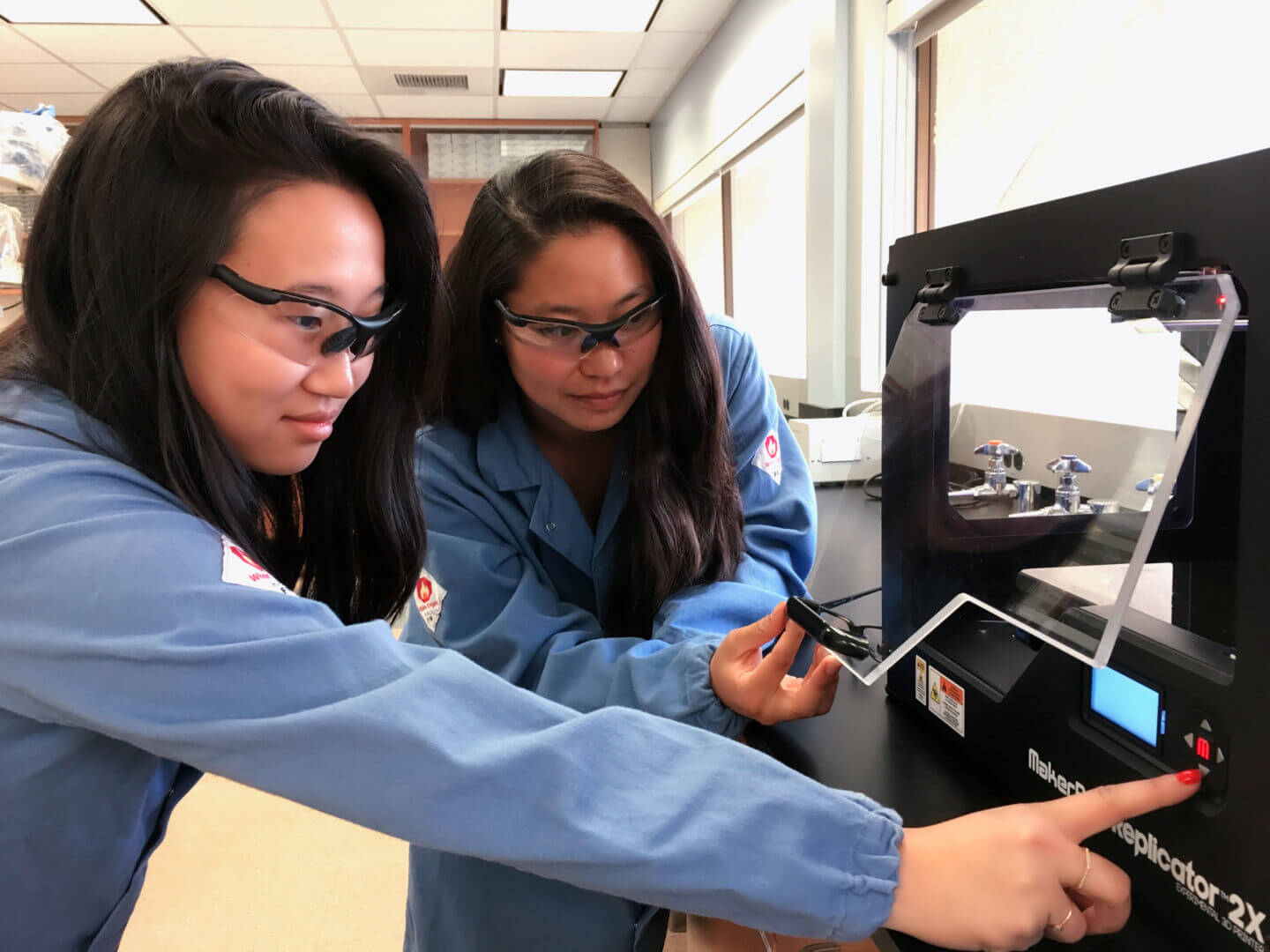Doing Well by Doing Good
Stephanie Fong, B.S. BME ‘ 15, has long wanted to make a difference.
That’s why she studied biomedical engineering as an undergraduate. That’s also why she and Joycelyn Yip – B.S. BME ‘15 – leapt at the opportunity to participate in the Min Family Engineering Social Entrepreneurship Challenge. Unlike other business model competitions, the Min Challenge focuses as much on addressing major social issues as with profit making.
As part of the competition, Fong and Yip, now graduate students at USC Viterbi, have co-founded a startup called FlexSpecs. The goal: produce inexpensive eyeglasses with adjustable lenses that require no prescription.
“We have spoken to potential customers here in Los Angeles in the College Park area who have told us how their children are struggling in school or how they or their spouse can’t find jobs because they can’t afford glasses,” said Fong, who hopes to sell FlexSpecs for about $50 a pair. “I think that’s unconscionable.”
In late February, the Min Challenge awarded grants of up to $10,000 to FlexSpecs and three other startups in the social entrepreneurship contest for research and other purposes. FlexSpecs plans to spend its $3,600 to develop a prototype.
Other awardees include:
- Drops, an iPhone app that lets users round up credit and debit card purchases, donating the difference from the purchase price to a charity of their choice.
- MedZango, a mobile app that lets patients record real-time physical discomfort and medical symptoms and translates them into meaningful data for physicians.
- OptDX, which automates the screening process for retinopathy of prematurity (ROP). By using retinal scans and an image-based machine-learning algorithm, OptDX can identify high-risk cases of ROP, the leading cause of childhood blindness.
Nearly $30,000 in prize money is at stake.
Twenty-six teams applied to the Min Challenge, reflecting the growing popularity among students in leveraging technology and the tools of business to address global issues ranging from access to clean water to health.
“I’m excited that we have seen such a strong interest in using engineering to solve social problems,” said Andrea Belz, director of the NSF-funded Innovation Node – Los Angeles and USC Viterbi’s entrepreneur in residence.
The Min Challenge launched in October with a generous gift from Bryan Min, B.S. ISE ’86 and a member of the USC Viterbi Board of Councilors, and his family. Since then, participants have attended several business model workshops developed by Innovation Node – Los Angeles. Each team must have at least one USC Viterbi student.
The need for social entrepreneurship has never been greater, said Adlai Wertman, professor of clinical entrepreneurship at the USC Marshall School of Business and founding director of the Brittingham Social Enterprise Lab.
“We’ve got this series of serious and big social problems in the world, and they are bigger than can ever be solved by traditional philanthropy alone,” said Wertman, who taught the Min Challenge class on social entrepreneurship.
That’s where an entrepreneur like FlexSpecs’ Fong comes in.
“I want to do good through technology, to find simple but effective solutions that create change,” she said.
Editor’s Note: At the April 20 Viterbi Awards, FlexSpecs won the Min Challenge, along with $15,000.




